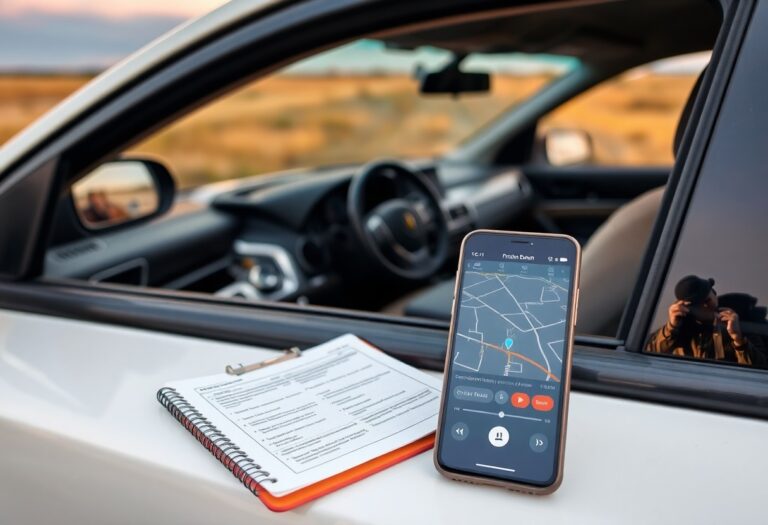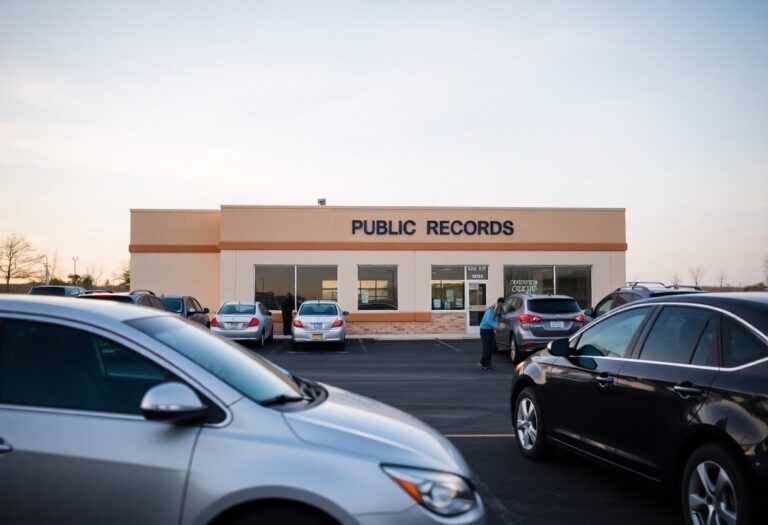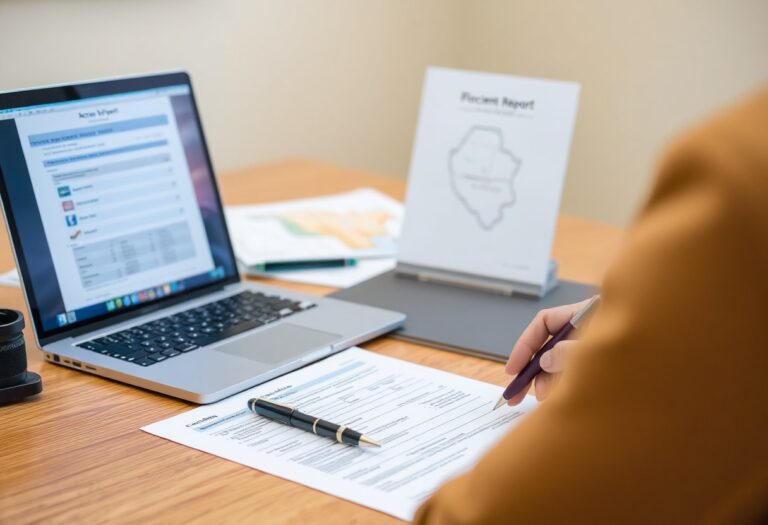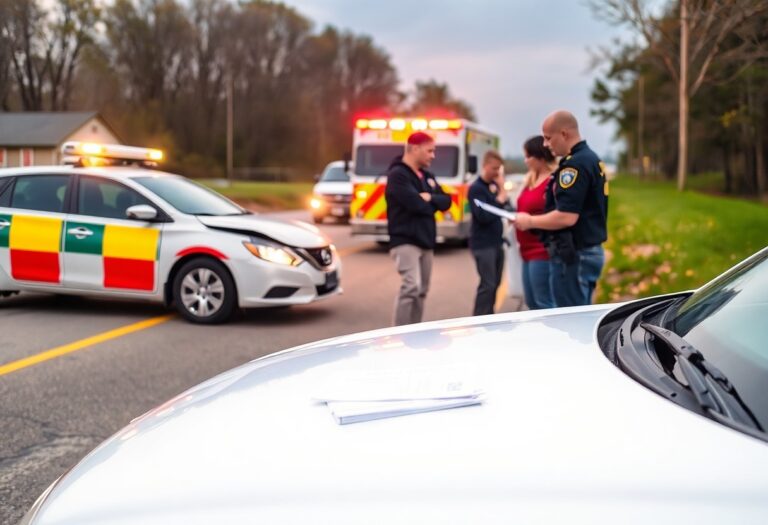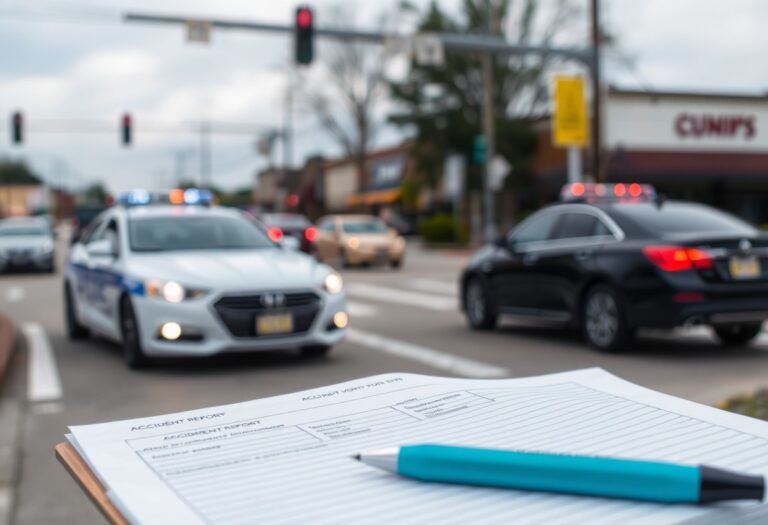DeKalb County is where you may find yourself navigating the aftermath of a car accident, and understanding the reporting process can be vital for your peace of mind. This guide will provide you with step-by-step instructions to efficiently file your accident report, including imperative details you need to document and valuable resources available to aid you. By being well-informed, you can ensure that your rights are protected and that you receive the support you need during this challenging time.
Decoding the Car Accident Reporting Process
Understanding the car accident reporting process empowers you to navigate the aftermath of a collision smoothly. Each stage, from securing the scene to filing the necessary paperwork, plays a significant role in ensuring your rights and safety are upheld. Familiarity with this process helps you act efficiently and effectively when you need to gather evidence and communicate with relevant authorities.
Understanding the Initial Steps Following a Collision
After a collision, your immediate priority should be assessing injuries among everyone involved. You should ensure your safety and the safety of others by moving vehicles, if possible, to the side of the road. Next, contacting law enforcement is vital for obtaining an official report, which can serve as a key component when pursuing claims. Gathering information from witnesses, sharing your details with other parties, and documenting the scene through photographs can further solidify your evidence.
Legal Obligations: When and How to Report an Accident
In Tennessee, you are legally obligated to report any car accident that results in injury, death, or property damage exceeding $400. The initial step involves contacting the police or highway patrol to file an official report. If you’re unable to do so at the time of the incident, you must submit a written report to the Department of Safety and Homeland Security within 20 days. This official documentation is imperative for insurance claims and any potential legal proceedings.
Your obligation to report extends beyond merely notifying the authorities; adhering to the specific timeline is paramount. Failing to report promptly can result in penalties or complications with your insurance claims. By ensuring that you handle the reporting correctly and with attention to detail, you reinforce your position and safeguard your interests during the negotiation process that follows an accident.
Compiling Key Information for Your Report
Creating a comprehensive car accident report involves collecting all relevant information that can substantiate your case. This includes details about the accident scene, vehicles involved, and any injuries sustained. Your report should aim to provide a clear, factual account that can later assist insurance companies, legal representatives, and law enforcement, ensuring all perspectives are captured and understood.
Essential Details to Document at the Scene
At the scene of the accident, take note of the location, date, and time of the incident. Record the makes and models of all vehicles involved, their license plate numbers, and any visible damages. Capturing photographs of the scene can be invaluable, so use your smartphone to document various angles and any relevant road signs or signals that may have contributed to the accident.
Gathering Witness Accounts and Supporting Evidence
Securing statements from witnesses can provide additional context to the event. Approach anyone present to ask for their account of the accident and include their names and contact information. This extra layer of evidence can strengthen your report and provide independent verification of what happened.
Collecting witness accounts not only helps in corroborating your version of events but also gives you possible contacts for follow-up questions. Encourage witnesses to describe what they saw in detail, focusing on key aspects like driver behavior, traffic signals, and the immediate aftermath of the incident. Their observations may offer insights that can enhance the credibility of your report, especially if there are discrepancies between parties involved. Additionally, if possible, record these statements on video or audio, which can serve as reliable proof should legal proceedings arise.
Navigating Insurance Communication
After a car accident, communicating effectively with your insurance company can influence the outcome of your claim significantly. Responses should be prompt, thorough, and professional, ensuring that you provide all necessary documentation without divulging unnecessary details. It’s advantageous to keep a record of all correspondences, including dates and names of representatives, to maintain a clear timeline for any follow-up discussions.
How to Prepare Your Report for Insurance Adjusters
Organizing your accident report for insurance adjusters involves summarizing important facts, providing a detailed description of the events leading up to the accident, and including any witness statements or police reports. You should compile all your information in a clear, concise manner, presenting the facts logically without speculation or emotion. Attach any photographs you’ve taken at the scene and relevant medical records to support your claim further.
The Do’s and Don’ts of Discussing Your Accident
Engaging in discussions about your accident requires careful consideration. Do share accurate, factual details with your insurer while refraining from admitting fault or discussing opinions about the accident scenario. Providing a concise account of what occurred helps maintain clarity, while avoiding emotive language ensures you do not inadvertently weaken your position. Always consult with a legal professional for guidance if unsure how to navigate this conversation.
The conversation surrounding your accident can be delicate. Keep your communication factual and focused on specific details, avoiding any emotional reactions or assumptions about fault. A brief account of the events, without straying into interpretations or opinions, strengthens your ability to maintain a solid case while protecting your interests. Engaging a legal consultant or an insurance expert can further aid in framing your statements accurately to avoid potential pitfalls.
Employing Legal Resources and Support
Securing the right legal resources can significantly enhance your chances of navigating the aftermath of a car accident successfully. This might involve consulting with an attorney who specializes in personal injury or auto accidents, ensuring you understand your rights and the potential compensation available. Legal professionals can assist in gathering evidence, negotiating with insurance companies, and representing you in court if needed. Their expertise can help you avoid common pitfalls while maximizing the financial outcome of your claim.
When to Involve an Attorney in Your Accident Report
Involving an attorney early in your accident report process can be beneficial, especially if there are significant damages or injuries involved. If you face challenges like disputes over fault or injuries that require extensive medical attention, seeking legal counsel is advisable. An attorney can provide clarity on legal implications, ensuring your report is comprehensive and accurately reflects the circumstances of the accident.
Finding Local Legal Experts in DeKalb County
When searching for legal experts in DeKalb County, consider utilizing local resources such as the Tennessee Bar Association or searching online legal directories. Local law firms often provide initial consultations at no charge, giving you a chance to assess their expertise without financial commitment. Familiarity with Tennessee car accident laws can make a difference, so prioritize firms with a proven track record in personal injury cases. Networking within your community can also yield personal recommendations for reputable attorneys.
Several established law firms in DeKalb County specialize in personal injury and car accident cases, providing tailored legal services that address the specific needs of local clients. Take the time to read client reviews and testimonials, which can offer insight into attorneys’ effectiveness and dedication. Consider reaching out to firms that have successfully handled cases similar to yours, as their experience can directly impact the outcome of your situation. Local attorneys might also have relationships with area courts and insurance providers, which can be advantageous in securing favorable settlements.
The Aftermath: What Comes Next?
Processing the aftermath of a car accident can be overwhelming. Taking immediate steps can greatly ease your journey toward recovery and resolution. From understanding the specifics of your accident report to seeking medical and financial support, each action should be intentional and informed. This phase ultimately lays the foundation for your next steps, whether it involves filing an insurance claim, pursuing legal actions, or focusing on your health and recovery.
Understanding Potential Outcomes of Your Report
Reviewing your accident report can reveal important insights into potential outcomes. The details captured in this document directly impact your claims process, liability assessments, and any legal actions. For instance, if the report attributes fault to another driver, your chances of receiving compensation increase significantly, while incorrect or incomplete information can delay proceedings or result in denied claims.
Planning for Medical and Financial Consequences
Addressing medical and financial consequences is vital after an accident. Medical bills can quickly accumulate, and if injuries are sustained, ongoing treatment and rehabilitation might be necessary. Understanding your health insurance coverage and out-of-pocket expenses will inform financial planning moving forward.
Consider that in 2020, the average cost of hospitalization for a crash-related injury was approximately $57,000, which often excludes follow-up care and physical therapy. You should document all medical treatments, coordinate benefits with your health insurance, and even explore potential compensation through your personal injury claim. Additionally, look into available financial assistance programs that can help mitigate costs while you recover, ensuring you’re not left in a difficult position as medical bills mount or income is lost due to time away from work.
To wrap up
Upon reflecting on the step-by-step car accident report support available in DeKalb County, Tennessee, you can feel empowered to navigate the aftermath of an accident effectively. By understanding the processes involved and knowing your rights, you can streamline the reporting process, ensuring all necessary information is documented accurately. This knowledge not only aids in the resolution of your situation but also supports you in any potential claims or disputes. Be proactive and informed to protect your interests in the wake of an accident.








